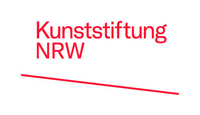
Structure
Dr Regina Peeters – a library for Babel?
“Literary translators form a very specific user group in libraries. Unlike other users, they are not interested in a clearly defined specialist field or specific themes. Their research covers almost the entire cosmos of knowledge: depending on the reality depicted - or constituted - in the novel, they have to familiarise themselves with widely varying terminology, clarify circumstances from all areas of culture and life, identify quotations from a wide range of sources, and check bibliographical references. To make matters even trickier, literature often reacts more quickly to social, technical and cultural changes than do traditional reference works: a literary work often coins new terms for which there are no equivalents in other languages - this ranges from Goethe's “Elective Affinities” to Douglas Coupland's neologisms such as ‘McJob’ or ‘Generation X”.
A translator-specific library thus occupies a hybrid position: on the one hand, it must cover all fields of knowledge in terms of its collections, like a universal library; on the other hand, it must be a specialised library in terms of its focus on the needs of a specific target group, the topicality of its collections, the depth of its indexing and, last but not least, in what form the material is collected. Digital media is proving to be an efficient research tool, particularly for specific information needs. However, the Internet can only be one part of a supplementary system of information provision in a translator-specific library, which, on the other hand, is based on a traditional library collection. The advantages of which - secure and authenticated information, a search geared to the context, a constantly available collection that is independent of technical conditions - will remain unrivalled, at least in the medium term.”




